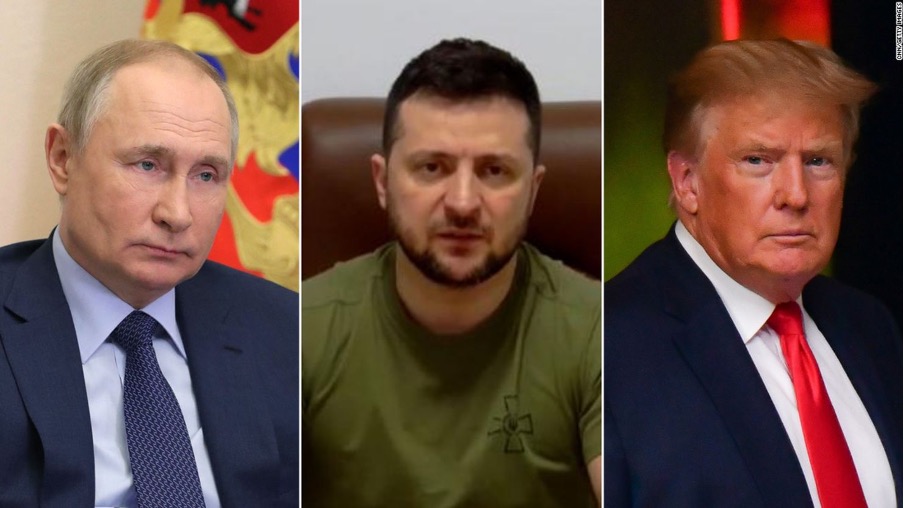How Putin Could Exploit a Trump Victory to Pressure the West on Ukraine
By Raul Fernandes Pessoa de Mello | Published on December 9, 2024

The war in Ukraine has entered an escalated stage, with Russia now looking for any opportunity to undermine the Western commitment to supporting Ukraine.
With Russian President Vladimire Putin looking to put pressure on the European Union (EU) and other donors to reduce their aid to Ukraine, Donald Trump’s recent victory of the White House could prove to be a decisive event.
This article examines how Putin could exploit Trump’s isolationist tendencies, weaponize energy and economic tools, and manipulate global media narratives to further his goals, including fear-mongering over advanced weaponry like British missiles in Ukraine.
One of the pillars of Donald Trump’s “America First” rhetoric has for a long time been a reduced U.S. role in global conflicts. NATO, in particular, faced strong condemnations from Trump during his presidency and recent election campaign. He criticised the alliance, threatened to withdraw the US, and vowed to put pressure on other members to match the extent of America’s financial contributions or face the lifting of America’s ‘security umbrella’.
With his official return to office scheduled in January, the President-elect’s skepticism toward Ukraine aid could result in a significant reduction in American support, leaving European nations with a pressing question on whether to carry a larger share of the financial and military burden.
Putin could amplify this shift by framing it as evidence of the West’s diminishing resolve. The Russian propaganda machine might highlight Trump’s victory as a sign that public opinion in the West is turning against Ukraine. This narrative could sow division among EU member states, some of which are already grappling with internal debates about the sustainability of their aid commitments.
Even though Europe's reliance on Russian energy has diminished since the invasion of Ukraine, the continent is not immune to further economic pressure. A cold winter or a prolonged conflict could allow Putin to leverage Europe’s energy needs once more. Russia could target vulnerable nations like Germany, where industries and households face high energy costs despite diversification efforts.
Additionally, Putin may use Russia’s status as an energy-wealthy country to strike bilateral energy deals with more Russia-friendly EU members, like Viktor Orban’s Hungary. By making offers of cheaper gas, he would count on an appeal of such a deal to create friction within the broadly ideologically homogeneous EU. This strategy of essentially divide-and-conquering would make it much harder for the bloc to retain a cohesive policy on the Ukraine crisis.
Putin’s use of global media is another type of warfare he has extensively used in recent years to shape narratives. A recent example could be the Kremlin’s framing of the news about the Western long-range missiles being used by Ukraine to strike targets inside Russia. Russian state media framed this specifically as a direct threat to Russia's sovereignty and security coming from NATO countries that are not an official party in the Ukrainian war.
This tactic serves two purposes which both aim to undermine the West’s commitment to Ukraine. First, it aims to create fear-mongering by highlighting the high likelihood for serious escalation. The implication often made by Russian state media is that if such support from Western allies is to continue, Russia could be pushed into more aggressive actions, bringing the conflict into a previously uncharted territory.
This follows into the second purpose. By highlighting the decisiveness of the Russian state to use whatever means necessary to come out of this conflict as winner, Putin aims to create fatigue among donor nations, making their citizens question whether there is any realistic chance to alter the outcome of conflict.
This is also extended to the spread of rhetoric from the Russian-friendly media sources around the claims that further Ukrainian aid puts too much of an unneeded financial burden on the regular citizens. These claims are especially damaging when combined with the very real economic hardships many Western countries now face, such as inflation, cost of living crisis, and rising costs of energy.
This type of hybrid warfare is aimed to primarily push countries which have been more skeptical of aiding Ukraine into greater doubts. Essentially the tension between domestic and foreign policy concerns is created here. For leaders who will have to face their electorate in the near future, keeping up support for Ukraine may be seen as too risky of a gamble.
And again Russian state media frequently exploits the unrest in many Western nations around the weakening economy and rising cost of living, linking these to sanctions of Russia. If the US leadership was to somehow weaken under Trump, Putin’s ability to manipulate the narrative would be largely unchecked.
A Trump victory in 2024 could fundamentally alter the geopolitical landscape, providing Putin with a golden opportunity to undermine Western support for Ukraine. By exploiting Trump’s isolationist stance, leveraging energy, manipulating media narratives, and scaring allies with escalation threats, Putin aims to weaken the coalition sustaining Ukraine’s resistance.
Whether the European allies will take any action to maintain their unity on the Ukrainian conflict remains to be seen. Failure to do so is very likely to embolden Russia to prolong the conflict as, without the US taking initiative on the issue, there is so far not much that Europe would feel able to do.